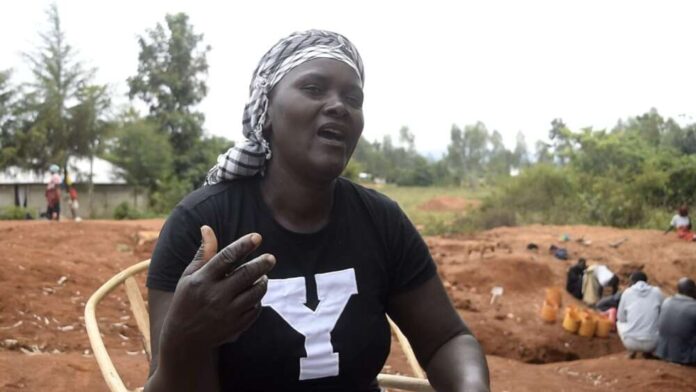By Jack Ochieng Ohito, DevReporter, Siaya County

KEY HIGHLIGHTS
- The importance of women’s empowerment has been discussed at various conferences, such as in Rio de Janeiro (1995), Cairo (1994), and Beijing (1996),
- One of the notable programmes that have helped women in Kenya is government funding for businesses and reserving government tenders for women and youth.
- There is slow implementation of key legal reforms, aimed at women’s empowerment
Talking to RBNews, Merab Adongo Otieno, a successful businesswoman, explores the progress of women’s empowerment and its impact on societal development. Merab, who runs a catering business supported by her retired husband, acknowledges significant strides in empowering women, particularly in her community. She highlights that women are excelling in leadership roles, starting businesses, and becoming more visible in various fields, and this is encouraging others to pursue similar goals. However, she believes that there is room for further improvement, particularly in creating more opportunities for women to excel in all sectors of life.
Merab cites various examples of progress, such as the increasing number of women vying for political seats and running successful businesses. She also notes that there are organizations offering training programmes for women, especially those looking to start and run their businesses. These initiatives help empower women and improve their economic standing.
In terms of government efforts, Merab commends government’s work in improving women’s rights and opportunities. Notable efforts include the revision of succession laws, allowing women to inherit land, and the provision of funding for women to start businesses. Additionally, there are government tenders reserved specifically for women and youth. Despite these positive developments, Merab points out that the implementation of the 2/3 gender rule, which aims to ensure women are adequately represented in leadership, is still pending, and more advocacy is needed to fully realize this goal.
When asked if women are effectively utilising these initiatives, Merab responds positively. She observes that many women, particularly in rural areas, are taking advantage of available resources and are starting small businesses. Some women have expanded their businesses, thereby improving the quality of life for their households. Access to education and training is also helping increase literacy levels, which is empowering women across the country. Nevertheless, Merab acknowledges that women in rural areas are still lagging behind those in urban areas when it comes to empowerment opportunities. This discrepancy, she believes, will eventually be addressed as programmes spread to more rural areas.
At the 2024 launch of the 16 days of activism against gender-based violence, Chief Officer in charge of Gender, Siaya County Government, Judith Oyugi, urged the stakeholders to work hand-in-hand with them. Through this, they will come up with policies such as creating more funds to empower women.
Related stories and further reading
Five things to accelerate women’s economic empowerment | UN Women – Headquarters
Five ways to build gender equality and sustainability | UN Women – Headquarters






